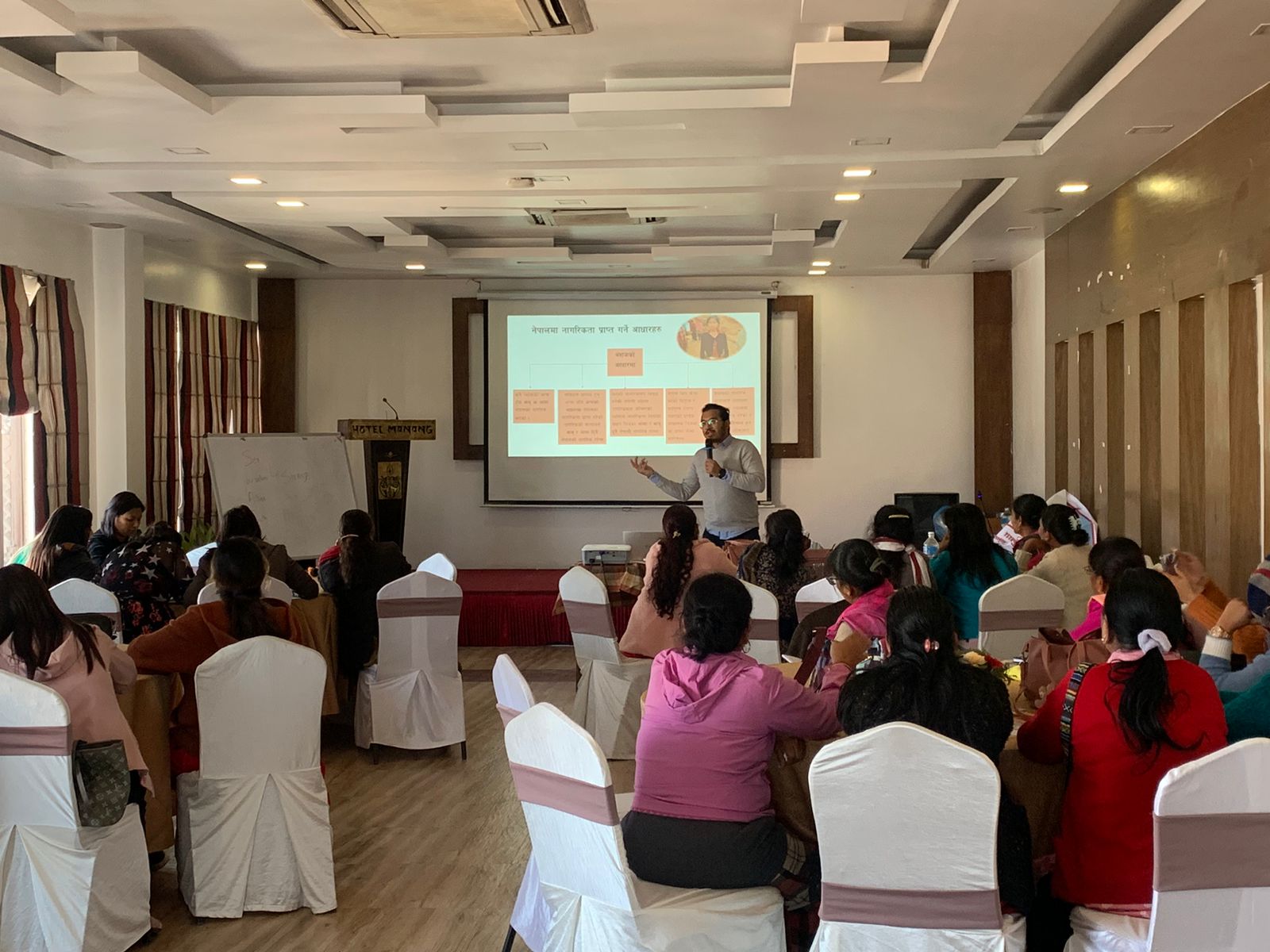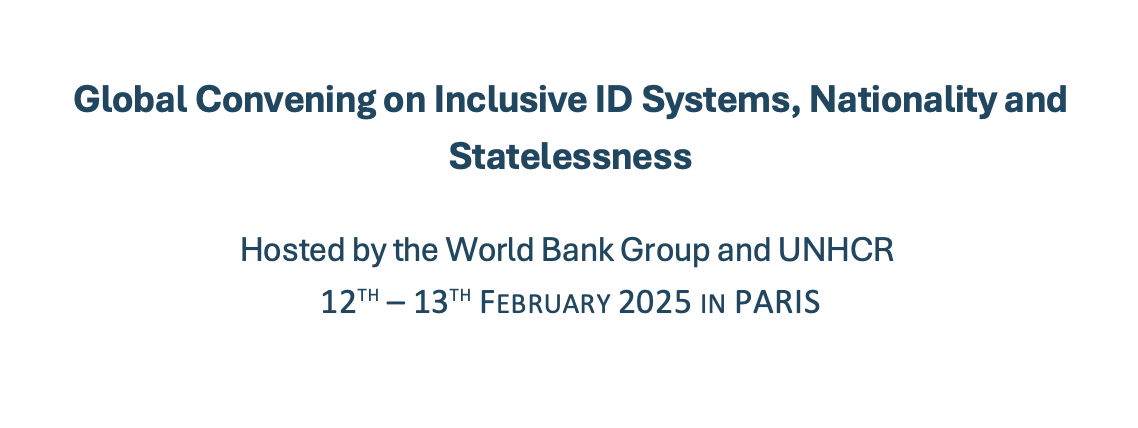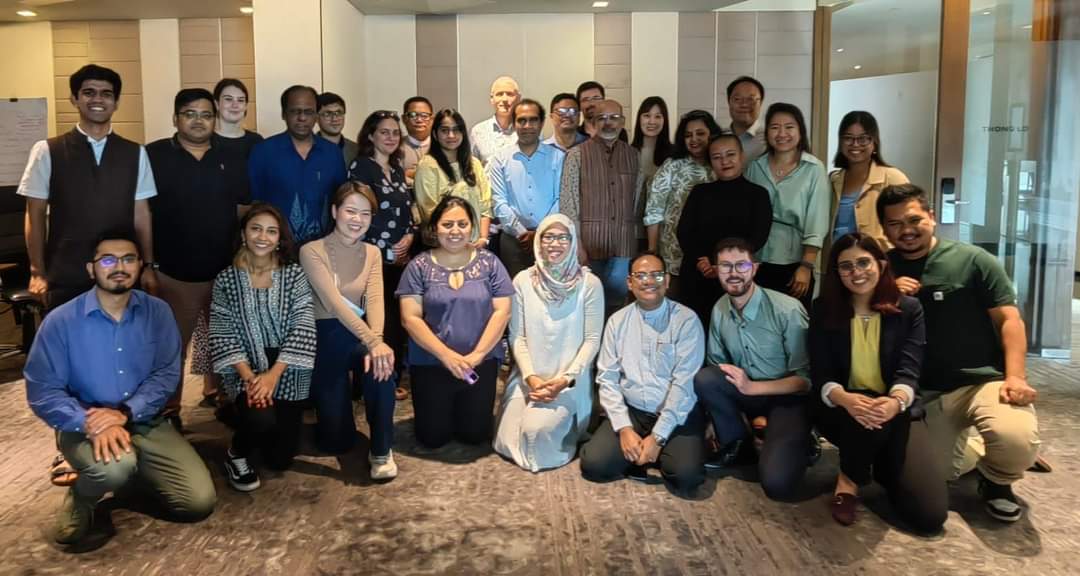Reimagining Digital Identity for Inclusion and Rights
📍 February 12–13, 2025 | World Bank, Paris, France
In February 2025, Nationality for All (NFA) participated in the Global Convening on Inclusive Digital ID Systems, Nationality, and Statelessness, hosted by the World Bank and global partners in Paris, France. The event brought together government officials, international agencies, civil society representatives, and advocates to explore how digital identity (ID) systems can advance, not undermine the rights of stateless and marginalized communities.
Representing NFA, Executive Director Subin Mulmi presented findings from NFA’s ongoing research on Digital ID Systems and Stateless Individuals in South Asia, highlighting the exclusionary impacts and opportunities within emerging national ID systems across the regionDigital ID Systems and Stateles….
Inclusive ID Systems: From Technology to Human Rights
Throughout the two-day convening, participants engaged in a series of sessions exploring the intersections between digital ID, citizenship, and statelessness, with a strong focus on ensuring meaningful participation of affected communities in the design of ID systems.
Subin underscored how digitization without safeguards can deepen exclusion, particularly when nationality or legal status becomes a prerequisite for registration. He shared examples from Pakistan’s Bengali-speaking communities, where digitization and the creation of the National Alien Registration Authority (NADRA) led to the revocation of citizenship and increased marginalization.
He also emphasized the urgent need for rights-based data protection frameworks, noting that several South Asian countries, including Afghanistan, Pakistan, and Nepal—lack dedicated privacy laws, while others like Bangladesh and Sri Lanka have frameworks that remain limited in scope and enforcement.
A Global Dialogue on Safeguards, Privacy, and Participation
Sessions during the convening explored a wide range of themes, including:
- Discrimination in civil registration and nationality laws, and the administrative barriers that perpetuate statelessness.
- Data protection and digital privacy, with discussions on how data breaches, surveillance, and cross-border data sharing can endanger vulnerable populations.
- The role of development partners, particularly the World Bank’s ID4D initiative, in promoting universal, inclusive, and rights-based identity systems.
- Good practices, such as Bhutan’s self-sovereign National Digital Identity (NDI) system, which ensures that individuals retain full control over their personal data.
A recurring concern was that, without inclusive design, Digital ID systems could reinforce inequality, creating sophisticated new mechanisms of exclusion rather than empowermentGlobal Convening on Digital ID,….
NFA’s Call for Rights-Based Digital Transformation
In his interventions, Subin Mulmi reiterated NFA’s position that:
- Legal and policy reforms must precede or accompany digital ID initiatives to prevent statelessness.
- Stateless and undocumented persons must be included in ID frameworks through alternative documentation pathways.
- Privacy and data security should be guaranteed through enforceable safeguards.
- Civil society and impacted persons must have a seat at the table when digital identity systems are designed, implemented, and monitored.
He stressed that the shift toward digital identity must be grounded in human rights, not just efficiency, and that technology should serve as a tool of inclusion, not exclusion.
Looking Ahead
The Paris convening concluded with a call for greater cross-sector collaboration to advance inclusive, transparent, and accountable ID systems worldwide. For NFA, the discussions reaffirmed the importance of continued regional research, advocacy, and engagement with partners to ensure that digital transformation protects, rather than erases, the rights of stateless and marginalized people.
As the Asia Pacific continues to expand its digital identity infrastructure, NFA remains committed to ensuring that no one is left behind in the digital age.




